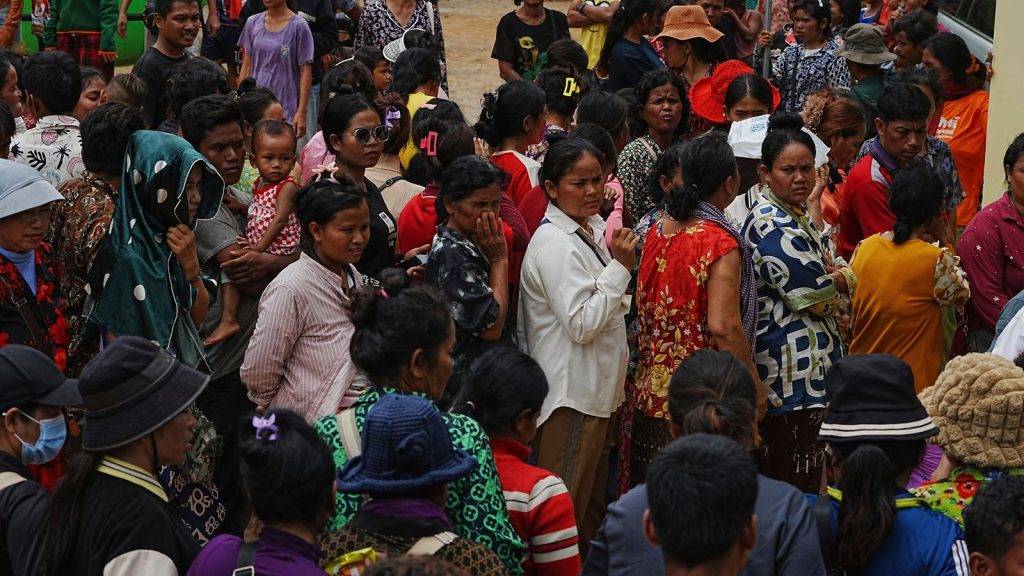Cliff Notes
-
Thai and Cambodian leaders will meet in Malaysia to negotiate a ceasefire following intense cross-border fighting, supported by US diplomatic intervention from Donald Trump and Marco Rubio.
-
The conflict has resulted in at least 34 fatalities, including civilians, and has displaced over 200,000 people, raising urgent calls for immediate de-escalation from both sides.
-
Despite the agreement for talks, accusations of ongoing shelling indicate persistent tensions as historical disputes over border regions remain unresolved.
Thailand and Cambodia agree to peace talks after Trump intervention – but shelling continues | World News
.
Thai and Cambodian leaders will meet in Malaysia for talks to end the cross-border fighting that has seen dozens of people killed.
The move comes after Donald Trump intervened, suggesting to the leaders of both countries that continued hostilities would harm their chances of getting a trade deal with the US.
He posted about the conversations on his social media platform Truth Social on Saturday and later said both sides agreed to meet to negotiate a ceasefire.
Later on Sunday, the US’s leading diplomat, Marco Rubio, in phone calls to the foreign ministers of both countries, told them Washington was prepared to facilitate talks and urged them to de-escalate and agree to a ceasefire immediately, the state department said in a statement.
At least 34 people, including 13 civilians, have died, while more than 200,000 have been forced to leave their homes to escape the fighting, now into its fourth day.
Cambodian Prime Minister Hun Manet said on Sunday his country agreed to pursue an “immediate and unconditional ceasefire”.
He said Mr Trump told him that Thailand had also agreed to halt attacks following the US leader’s conversation with Acting Thai Prime Minister Phumtham Wechayachai.
The Cambodian leader said it was “positive news for the soldiers and people of both countries”.
Thailand’s foreign ministry expressed cautious support, reporting that its leader told Mr Trump Thailand agreed in principle to a ceasefire while insisting on the need for “sincere intention” from its South East Asian neighbour.
He called for swift bilateral talks to discuss concrete steps toward a peaceful resolution, the ministry said.
But even as hopes for a lasting peace grew, hours later in the early hours of Sunday, each accused the other of shelling targets across the disputed border areas.
In what appeared to be a sign of immediate progress, Malaysia’s state news agency, Bernama, quoting Malaysia’s foreign minister Mohamad Hasan, said the two leaders will open peace talks in Malaysia on Monday.
The two nations have been at loggerheads over border areas for decades, and simmering tensions escalated into an exchange of gunfire, shelling and rockets on 24 July, with both sides accusing one another of initiating the violence.
Both countries recalled their ambassadors, and Thailand closed its border crossings with Cambodia.
Relations between the pair deteriorated sharply after an armed confrontation in May that killed a Cambodian soldier. Nationalist passions on both sides have further inflamed the situation.
Both countries claim to own the ancient Ta Muen Thom temple along the border of Thailand’s Surin province and Cambodia’s Oddar Meanchey province, among other areas.


